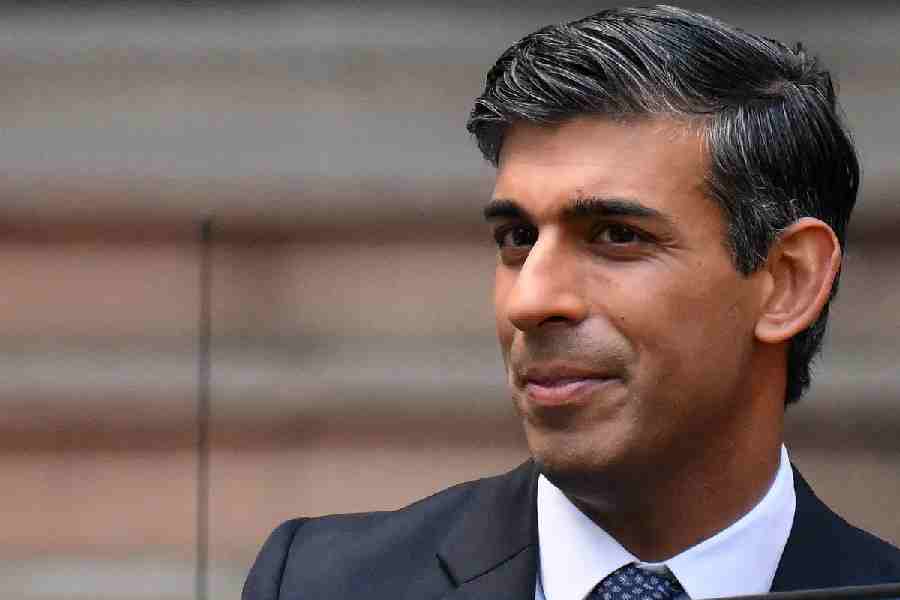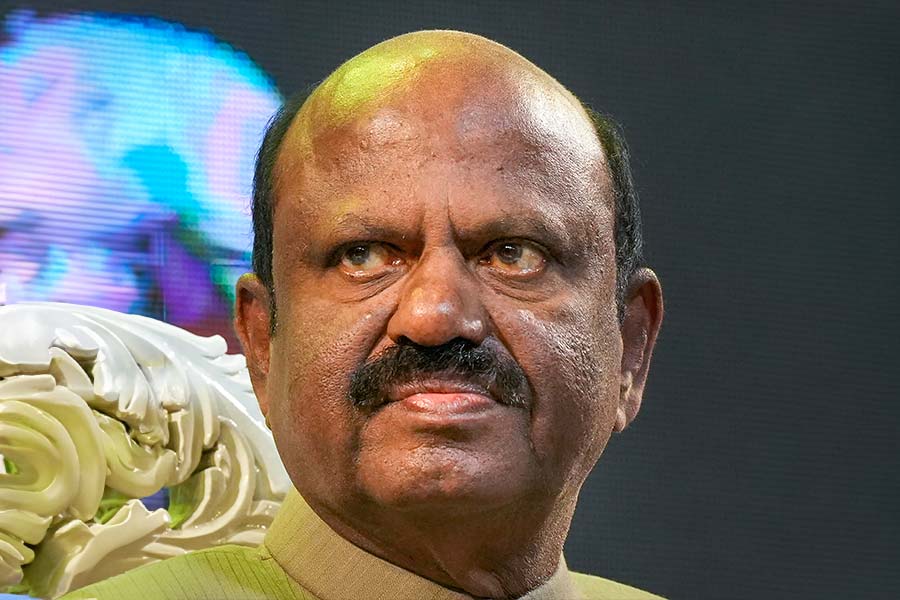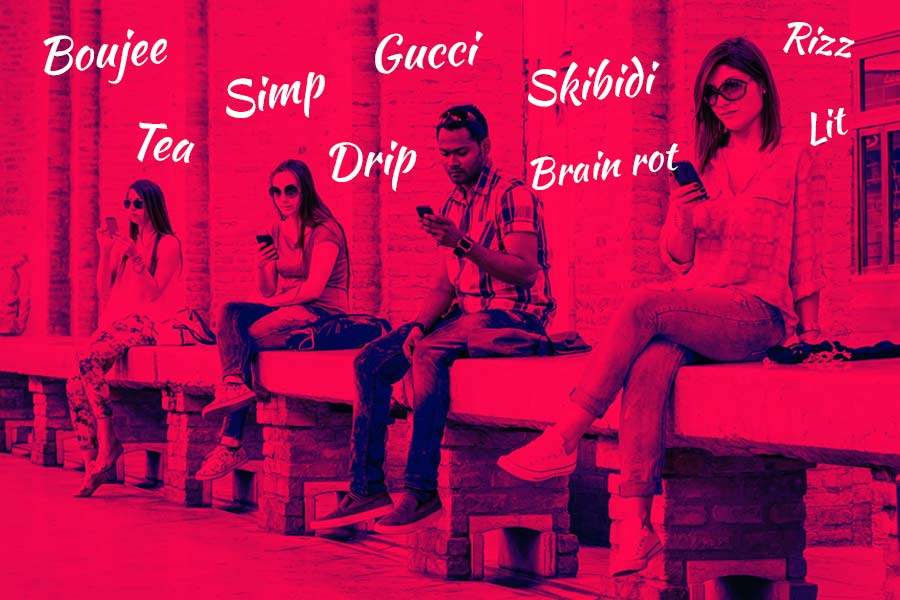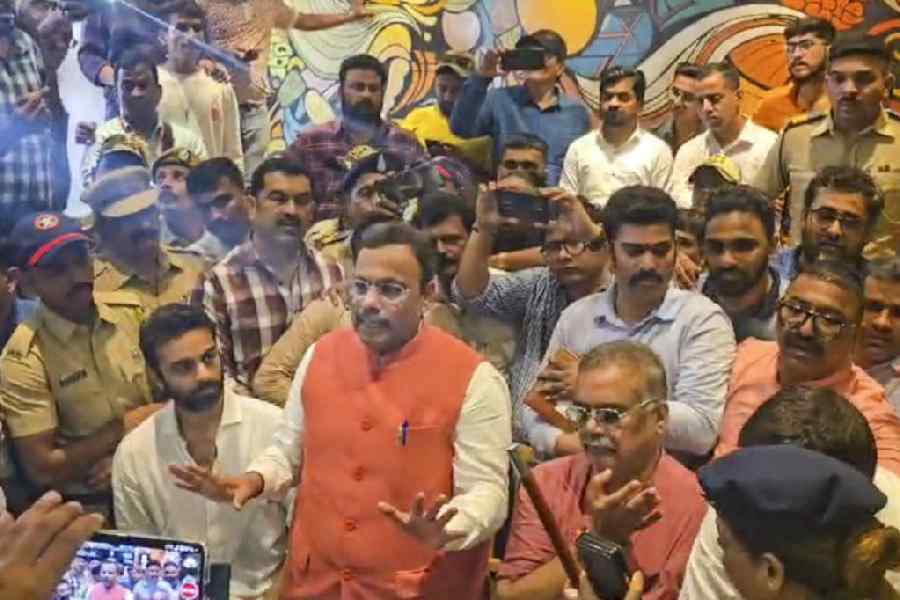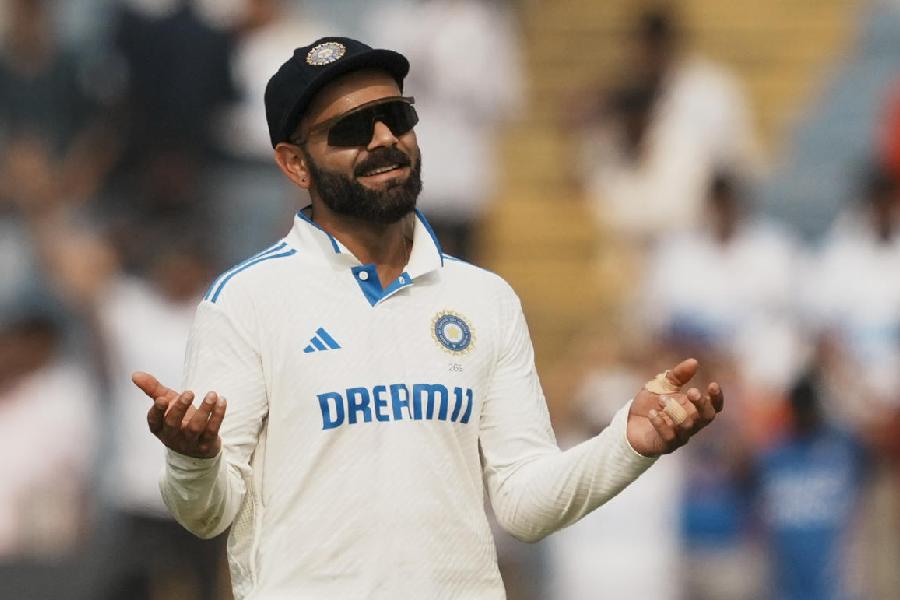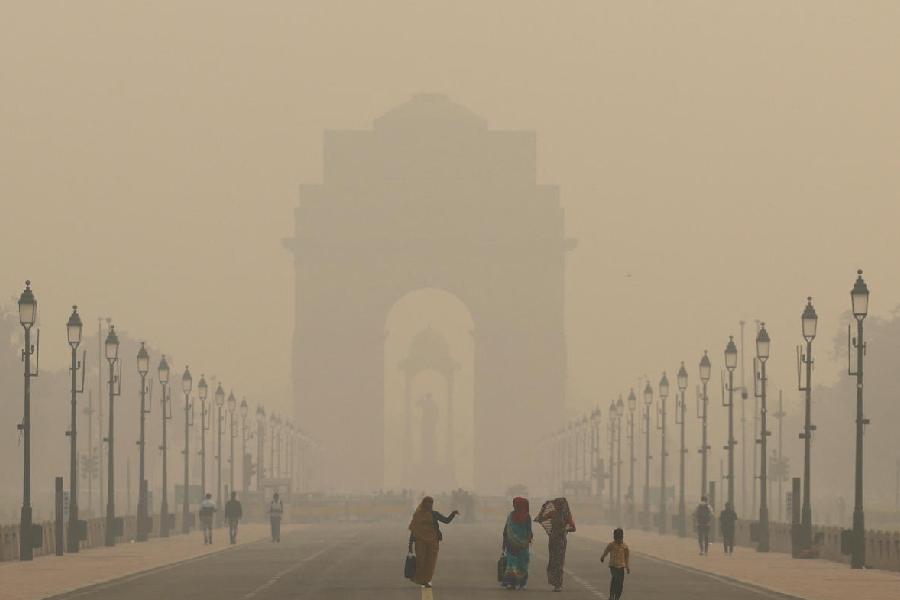Prime Minister Rishi Sunak is chairing a high-level meeting at 10 Downing Street in London on Monday to assess domestic security issues for the UK amid the Israel-Gaza conflict and against the backdrop of widespread protests on the streets of the country.
The Cabinet Office Briefing Rooms A (COBRA) meeting attended by UK Home Secretary Suella Braverman and counterterrorism officials follows another weekend of thousands of people protesting against the conflict in the Middle East, resulting in nine arrests and five being charged with public order offences including for racially aggravated crimes.
“We have to make sure that British citizens are safe and secure from the threat of terrorism as the government always does," UK Education Minister Robert Halfon told 'Times Radio' with reference to the high-level COBRA meeting at Downing Street.
It follows the Metropolitan Police Commissioner, Sir Mark Rowley, calling for "sharper" laws to deal with extremism on the streets of Britain.
"There is scope to be much sharper in how we deal with extremism within this country. The law was never designed to deal with extremism, there's a lot to do with terrorism and hate crime but we don't have a body of law that deals with extremism, and that is creating a gap," Rowley told ‘Sky News’ over the weekend.
The UK's current threat level is "substantial" which means an attack is likely – a level in place since February last year when it was downgraded from "severe", which means an attack is highly likely.
According to the Met Police, there has been a 14-fold increase in antisemitic incidents since the Middle East crisis intensified three weeks ago and a three-fold increase in Islamophobic hate crimes.
According to reports, the UK government may be looking into ways to tighten terrorism legislation to address some extremism concerns related to protests in the country, including chants of “jihad” and “intifada” calling for uprisings by demonstrators.
While Braverman has questioned the lack of tough police action against such incidents, the police have cautioned that the law is not entirely defined against such cases.
"We've got these big protests and some of what goes on there, people do find it upsetting and distasteful and sometimes people give an instinctive view that must not be legal. But there's no point arresting hundreds of people if it's not prosecutable, that's just inflaming things," said Rowley.
He also warned of “state threats from Iran” and terrorism threat being accelerated by the events and hate crime in communities in the UK.
Nearly 100 arrests have been made in London since the Israel-Hamas conflict escalated earlier this month and the Met Police chief predicts there would be “many, many more arrests” over the next few weeks as police track down people who had breached public order and terrorism laws at recent protests.
Meanwhile, UK Crime and Policing Minister Chris Philp has written to the country’s police chiefs to ask them to double the number of searches they make using artificial intelligence (AI) enabled retrospective facial recognition technology to track down known offenders.
“Facial recognition, including live facial recognition, has a sound legal basis that has been confirmed by the courts and has already enabled a large number of serious criminals to be caught, including for murder and sexual offences,” said Philp.
“AI technology is a powerful tool for good, with huge opportunities to advance policing and cut crime. We are committed to making sure police have the systems they need to solve and prevent crimes, bring offenders to justice, and protect the public,” he said.
Braverman will also convene an event this week which will bring together government, law enforcement and the tech industry to discuss how best to tackle child sexual abuse images which have been created using AI.
Except for the headline, this story has not been edited by The Telegraph Online staff and has been published from a syndicated feed.

